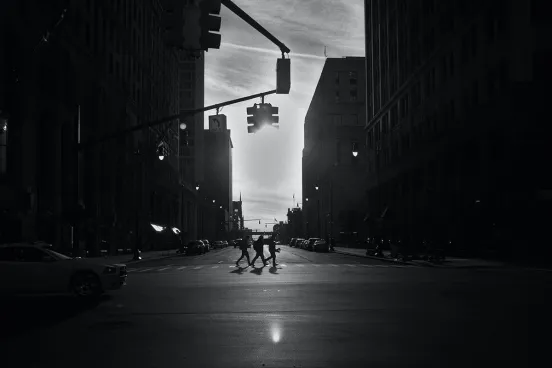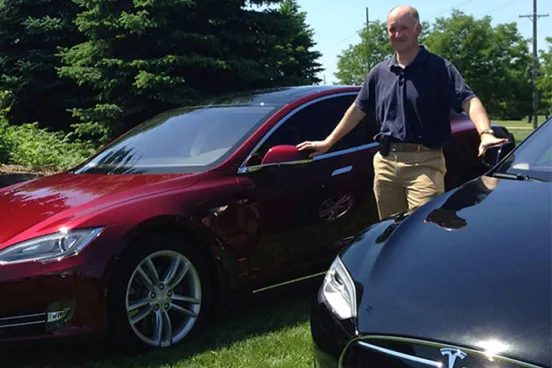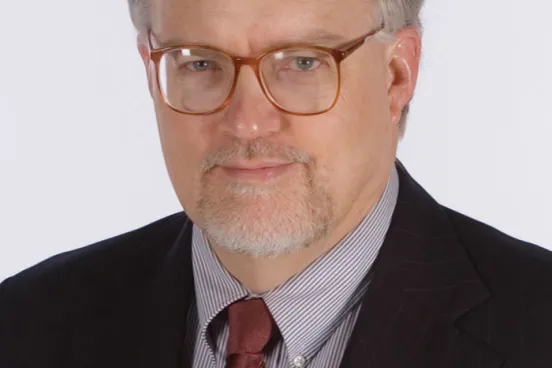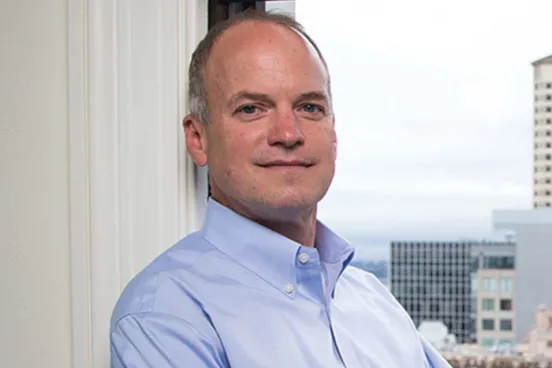Topic: Business and Entrepreneurship
68 results


Cover Story Spring 2014
Hatching New Businesses in Detroit
Nick Gorga, ’02, is helping “to put a small thumbprint on the next chapter of Detroit.” After working in Chicago for six years as an associate at Latham & Watkins LLP, Gorga returned to Detroit in 2008 to help combat what he viewed as a “brain drain” in the region.


@UMICHLAW Fall 2014
Kicking the Tires on America’s Car Dealer Lobby
Without a drop of gasoline, Tesla’s Model S goes from zero to 60 miles per hour in an electrifying 5.4 seconds. It’s sleek, state-of-the-art, and noticeably absent from many American showrooms. To Professor Daniel Crane, efforts to bar Tesla Motors from directly distributing its vehicles to customers are “protectionist, pure and simple.”


Cover Story Spring 2014
Detroit-based VC Firm Creates Irresistible Opportunity
When Jake Cohen, ’13, heard about a venture capital firm that would invest in early-stage technology companies based in Detroit, he couldn't pass it up. “This was a once-in-a-lifetime opportunity.”


@UMICHLAW Fall 2014
Prof. Logue: Terrorism Risk Insurance Act Set to Expire Unless Congress Acts
Insurance companies were unprepared to deal with the enormous insured property losses, estimated at about $39.5 billion, that resulted from the 9/11 terrorist attacks. Concerned about the possibility of future terrorist incidents and unsure how to pay for them, many insurance companies made terrorism risk coverage unaffordable or opted not to provide it.


Cover Story Spring 2014
Detroit 2.0
Detroit is a gutted city, a cautionary tale, a tapestry of ruin. Or Detroit is the comeback kid, a wise investment, a city that will return to greatness. What happens next in the country’s onetime industrial capital is a story that cannot yet be written; no crystal ball can accurately predict the future of the largest U.S. city ever to seek bankruptcy protection.


@UMICHLAW Fall 2014
New Book by Prof. Schneider Focuses on the Failure of Mandated Disclosure
Mandated disclosure. It’s the 15,000 words that stand between an iTunes user and his 99-cent download, the fine print on a doctor’s consent form, and the focus of a new book by Michigan Law Professor Carl E. Schneider, ’79.


Features Fall 2014
Good Fortune: An Angel Investor Helps Entrepreneurs Soar
“An entrepreneur can’t do everything themselves, so they need a team around them,” says Geoff Entress, ’98, a Seattle-based investor who has backed more than 125 companies in the last 15 years. Today, the Pittsburgh native is a venture partner with Voyager Capital, sits on the boards of 11 companies, and is what’s called an angel investor—that is, someone who provides personal capital to businesses trying to get off the ground.


Features Fall 2014
Lawyer-turned-entrepreneur Starts Luxe Loungewear Line
Jamie Loeks Duffield, ’12, wanted to be “on the other side of the table.” So she left her associate position at the Miami law firm Shutts and Bowen in July 2013 and returned to Michigan to start Duffield Lane, a loungewear/resort wear line that can be worn at home, out to dinner, or at the beach.

